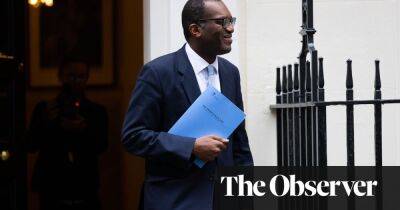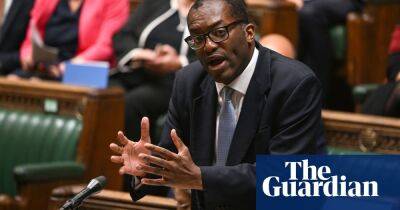Banks among biggest beneficiaries of Kwarteng’s mini-budget
Banks will be among the biggest beneficiaries of Kwasi Kwarteng’s mini-budget after he announced a raft of policies to help costs, boost profits, lure staff, fuel house prices and slash red tape.
One of the more controversial announcements on Friday was the decision to scrap the EU banker bonus cap, which has limited payouts to two-times workers’ salaries since 2014.
The rules were meant to end a bonus culture that prioritised short-term profits over longer-term stability in the run-up to the financial crisis. But Conservative politicians, including then chancellor George Osborne, railed against the cap from the start, warning it would harm competitiveness and increase banks’ fixed costs.
The new government is taking advantage of Brexit to scrap the cap, in a move likely to be be welcomed by employers who use variable pay to slash costs in slower years.
However, headhunters warn the effect will be marginal and unlikely to create more jobs or lure many high-earning bankers to the UK, given European staff tend to enjoy the reliability of salary-focused income, while US bankers are unlikely to leave New York for the same pay in London.
The decision to lift the cap perplexed some bank bosses who said they had not lobbied for the change, nor were they consulted on the proposals.
In the meantime, high-earning City bankers will still have an income tax reduction to look forward to.
Rising interest rates will boost banks’ net interest margins – which are a key measure of profitability and account for the difference between what is charged for loans and paid out for deposits. Lenders have been accused of being slow to pass on rate rises to savers while increasing mortgage rates for borrowers.
Liz Truss’s team’s decision to incentivise
Read more on theguardian.com




















